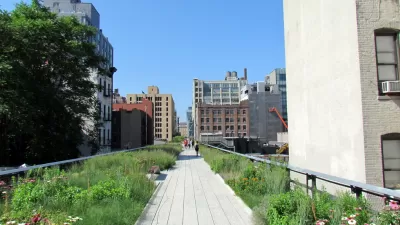Stadium construction in New York that was intended to have only a small cost to taxpayers has turned out to be a major investment and allocation of tax breaks, causing many to question whether the economic benefits of rebuilding will ever be seen.
"As the two stadiums near completion, the cost to taxpayers is anything but small, a review of the projects shows. Though the teams are indeed paying approximately $2 billion to erect the two stadiums, the cost to the city for infrastructure - parks, garages and transportation improvements - have jumped to about $458 million, from $281 million in 2005. The state is contributing an additional $201 million."
"Those totals do not include an estimated $480 million in city, state and federal tax breaks granted to both teams. In addition, neither team has to pay rent or property taxes, though they are playing on city-owned land."
"The expanding public cost of the stadiums, coming in another downturn, has fueled debate about their economic benefits, and has become an issue in Congressional hearings in Washington into the use of tax-exempt bonds for stadium construction."
"The Bloomberg administration says that keeping the Yankees in the Bronx and the Mets in Queens not only creates temporary construction and permanent stadium jobs, but also is crucial to the city's image."
FULL STORY: As Stadiums’ Costs Swell, Benefits in Question

Alabama: Trump Terminates Settlements for Black Communities Harmed By Raw Sewage
Trump deemed the landmark civil rights agreement “illegal DEI and environmental justice policy.”

Study: Maui’s Plan to Convert Vacation Rentals to Long-Term Housing Could Cause Nearly $1 Billion Economic Loss
The plan would reduce visitor accommodation by 25% resulting in 1,900 jobs lost.

Why Should We Subsidize Public Transportation?
Many public transit agencies face financial stress due to rising costs, declining fare revenue, and declining subsidies. Transit advocates must provide a strong business case for increasing public transit funding.

Wind Energy on the Rise Despite Federal Policy Reversal
The Trump administration is revoking federal support for renewable energy, but demand for new projects continues unabated.

Passengers Flock to Caltrain After Electrification
The new electric trains are running faster and more reliably, leading to strong ridership growth on the Bay Area rail system.

Texas Churches Rally Behind ‘Yes in God’s Back Yard’ Legislation
Religious leaders want the state to reduce zoning regulations to streamline leasing church-owned land to housing developers.
Urban Design for Planners 1: Software Tools
This six-course series explores essential urban design concepts using open source software and equips planners with the tools they need to participate fully in the urban design process.
Planning for Universal Design
Learn the tools for implementing Universal Design in planning regulations.
Caltrans
Smith Gee Studio
Institute for Housing and Urban Development Studies (IHS)
City of Grandview
Harvard GSD Executive Education
Toledo-Lucas County Plan Commissions
Salt Lake City
NYU Wagner Graduate School of Public Service




























